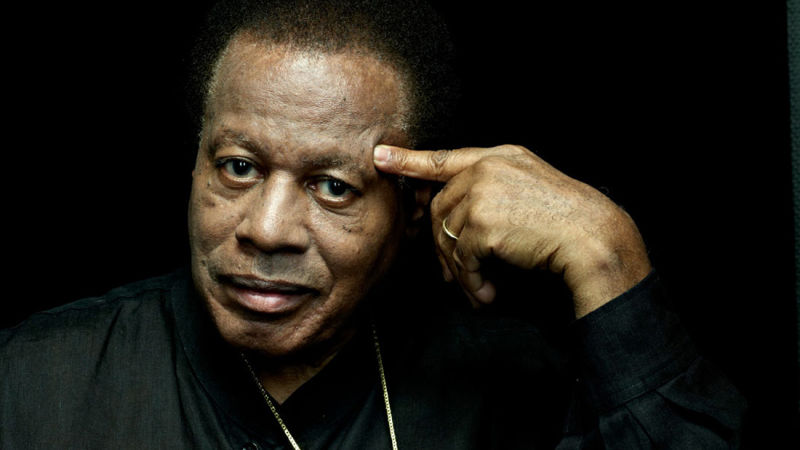With all of the sudden twists, vertiginous swoops, and conceptual leaps to seemingly unrelated themes that eventually circle back to his initial notion, a conversation with Wayne Shorter can feel a lot like one of his saxophone solos. Over the past 20 years I’ve interviewed him more than half a dozen times, and the experience is always a little disorienting as I trot behind him and try to keep up with his playful and disarmingly ingenuous turns of phrase.
A musical and intellectual explorer, the 82-year-old Shorter is far more than one of America’s greatest living composers. He’s an improviser working at the outer limits of group communication in a volatile quartet that often turns his classic, era-defining compositions into barely recognizable sonic fragments. Featuring Panamanian-born pianist Danilo Pérez, East Bay-raised bassist John Patitucci and Louisiana drummer Brian Blade, the band opens a four-night run at the SFJAZZ Center on Oct. 15.
A creative force ever since joining drummer Art Blakey’s Jazz Messengers in 1959, Shorter has exponentially expanded jazz’s frontiers from deep within the tradition. He’s a sci-fi buff who often hangs out with scientists, and a famous cinephile who has spoken about the formative impact of seeing The Red Shoes, Michael Powell’s classic 1948 film about a young ballerina’s sacrifices for her art. So it’s not surprising when he reframes my question about the quartet’s new music to explorer much larger, elemental ideas.
“My thing is not so much about sound and technique,” Shorter says, speaking by phone from his home in Los Angeles. “It’s what is music for? It doesn’t sooth the savage beast. People go to war beating drums. Like the two astronauts said as they got further and further way from Earth and see that blue dot, can you imagine fighting over a parking space?”
After the recent death of Ornette Coleman, Shorter and Sonny Rollins remain the last two titans on the scene who transformed jazz in the 1950s and 60s (the seemingly indestructible drummer Roy Haynes started shaking things up in the 1940s). And while Shorter isn’t deeply associated with the rhythmic, structural and harmonic freedom ushered in by Coleman, and expanded upon by John Coltrane and Albert Ayler, I couldn’t resist asking him whether he’d happened to catch Coleman’s epochal 1959 engagement at the Five Spot.


